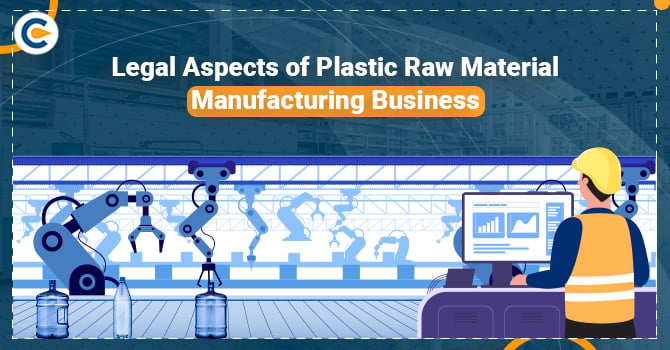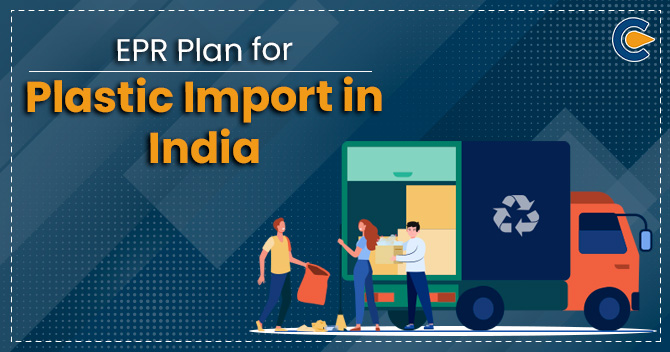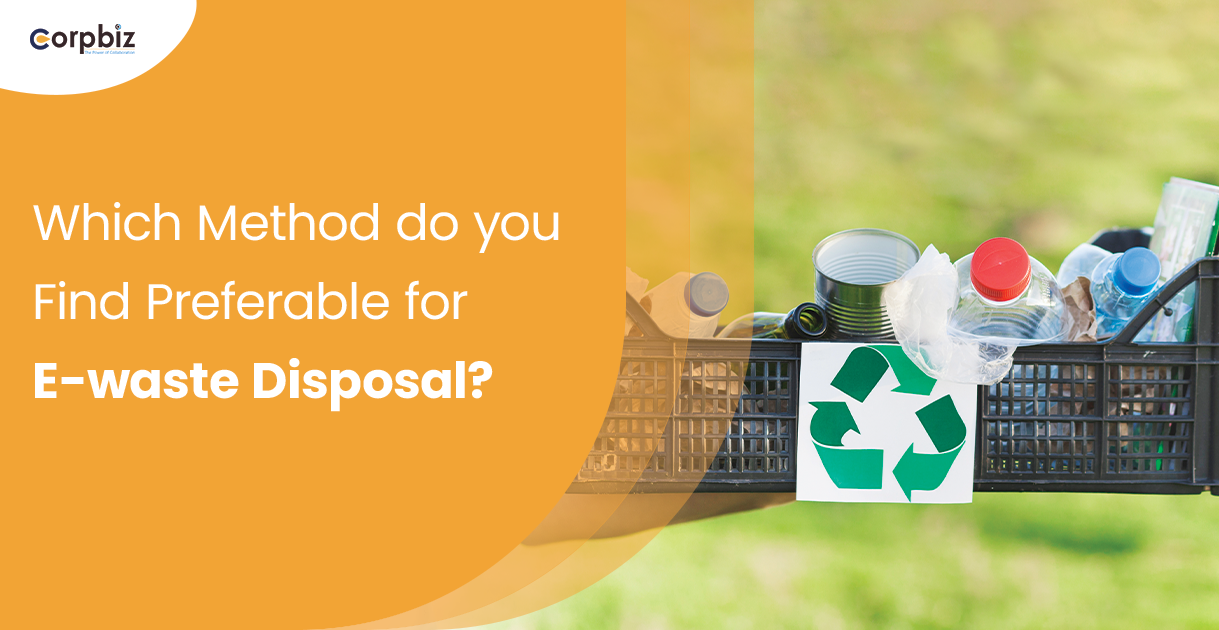The plastic Industry is making a meaningful contribution to the economic growth of various prominent sectors: Agriculture, FMCG, Textile, Automotive, Electronic, etc. It is one of the most rapidly thriving sectors in India. A wide range of plastic raw materials is being produced to fulfill the material needs of various sectors of the economy. These polymeric materials are classified as engineering, commodity, and specialty plastics. Commodity plastics serve as the primary products that account for the bulk of the plastics &, in turn, for the petrochemical sector. Commodity plastic usually comprises Polypropylene (PP), Polyethylene (PE), Polystyrene, and Polyvinyl Chloride (PVC). Entities are willing to undertake Plastic Raw material manufacturing as their primary business needs to fulfill various legal implications. This write-up shall provide needful information regarding the same in brief.
Plastic Raw Material Manufacturing Business (Mandatory Licenses and Permits)
Following section briefs out mandatory business licenses and registration for operating Plastic raw material manufacturing unit in India
Business registration/Incorporation certification
Securing Business registration is the foremost step in establishing a legalized production facility in India. It allows business owners to stay organized and compliant on account of the followings;
- Management/Decision Making
- Financial disclosure
- Annual filing of return
- Appointing top officials
- Drawing agreement with third-parties
There is array of business structures available to the business owners that comes under different legislations as shown below:
- OPC (One person company) – Companies Act, 2013
- Private Limited Company: Companies Act, 2013
- Partnership Firm: Partnership Act, 1932
- Limited Liability Company: LLP Act, 2008
Each business structure above revolves around different pre and post-registration compliances. So, it is advisable to hire a professional before initiating registration formalities.
Factory license
Factory license comes under the ambit of Factory Act, 1948[1]. All the production facilities must register under this Act and thus, secure Factory license before stating the production undertakings. The authority of grating the factory license is in the hand of the Chief Inspector of Labor Commissioner Organization.
Pollution NOC (CTE and CTO from SPCB)
Pollution NOC is a mandate for entities prone to excessive emission of pollutants. Thus, it is also mandatory for Plastic Raw Material manufacturers. It is granted by Pollution Control Board situated in the respective state. The grant of Pollution NOC is classified into two mandatory consents that need to be secured in a subsequent manner after complying with underlying conditions
- CTE: Consent to Establish
- CTO: Consent to Operate
Since a lot of paperwork revolves around these consents, it is ideal to approach an expert and proceed accordingly.
Consent under Plastic Waste Management Rules, 2016
Consent under Plastic Waste Management Rules, 2016 is a mandatory requirement for PIBOs, i.e., Producers, Importers, and Brand owners. The plastic raw material facilities also come under the PWM Rules, 2016, and thus required to avail authorization from SPCB via Form III.
Form III is an application form and seeks applicants to facilitate the following details:
- Unit’s name & location
- Plant’s production facility
- Previous-held registration number, if available
- Detail about registration certificate conferred by District Industries Centre, if available
- The overall cost of the production facility
- Year of commencement of production
The fully filled Form III shall be submitted along with documents as shown below:
- Proof regarding the sale executed in more than two states (Tax invoice/GST etc.)
- Valid consent conferred under Air & Water Act
- Documents relating to EPR Action Plan*
- The document conferred by ULB/respective state authority related to the involvement of PIBO/WMA (as applicable)
- Registration conferred by State pollution board/PCC
- Agreement of PIBO/WMA with certified Plastic waste processor (as applicable)
- Agreement of PIBO with WMA (as applicable)
EPR Action Plan*
- EPR Action Plan relating to PWM has to be furnished by PIBOs functioning in more than two states) for securing consent from CPCB. PIBOs shall meet EPR in all the States/union territories in which they are launching their products.
- EPR Target for a certain state shall be equivalent to the amount and type plastic launched by them in the given market (market (post consumer waste) in the specific State /UT.
- In 2019, CPCB formulated the format for EPR action plan required for securing registration as per guideline of PWM Rules (Annexure I).
Fire NOC
Fire NOC is a certificate granted by the Fire department of the concerned Fire department after inspecting and validating the building’s fire assistance and the machines installed to avoid fire-related accidents.
GST Registration
Following is the list of businesses that are mandated to secure GST registration regardless of their turnover:
- Having yearly turnover of over forty lakhs ( ten lakhs for N-E states,, Jammu and Kashmir, HP & Uttarakhand)
- Input Service Distributor/ Casual taxable person
- Inter-state supplier of commodities & services
- Non-resident taxable person
- Suppliers of goods by way of an e-commerce portal
- Taxpayers falling under RCM i.e., Reverse Charge Mechanism
- Web-based data access or retrieval service provider
- TDS/TCS deductor
Conclusion
The legislations for the plastic sector has been formulated and amended numerous times to reduce the environmental impact. Entities, including Plastic Raw Material manufacturers emitting excessive pollution and plastic waste, confront stringent compliances compared to other industries in India. The ever-evolving nature of these norms has made it hard for Plastic Raw material entities to stay compliant and organized. This is where expert assistance comes into play, as it can keep these entities abreast of all the legal formalities and fulfill impending norms with authenticity.
Read our Article:Role and Duties of PRO under EWM Rules











